Tag Archive: Food Solutions New England
May 24, 2018
“We never know how our small activities will affect others through the invisible fabric of our connectedness. In this exquisitely connected world, it’s never a question of ‘critical mass.’ It’s always about critical connections.”
Grace Lee Boggs

As referenced in a previous post, the Food Solutions New England 21 Day Racial Equity Habit Building Challenge wrapped up about a month ago. This was the fourth offering of the Challenge, which was a remixed and enhanced virtual network form of an exercise created by Dr. Eddie Moore (founder of the Privilege Institute) and Debbie Irving (author of Waking Up White). A small design team of which I am a part originally saw the potential of using the Challenge to invite more widespread conversation about the connection between race, racism and sustainable food systems and ultimately greater action for racial justice. No one presumed that the Challenge in and of itself would be sufficient, but rather saw it as a way of creating “network effects” around the work that many are already doing in our region.
And there is evidence that there have been impacts happening as a result. Participation in the Challenge has grown from 200 to 3,000 from 2015 to 2018. This year the Challenge was launched, in a sense, at the Wallace Center’s National Good Food Network Conference in Albuquerque, New Mexico (gratitude to the Center’s staff for the invitation to do so!). We have heard stories since the beginning that various groups in the region and increasingly around the country have participated in the Challenge and invited others to do so, including Farm to Institution New England, Iowa State University Extension, The Interdependence Project, and The Fellowship of Intentional Community. Read More
May 22, 2018
Connection is a social determinant of health.
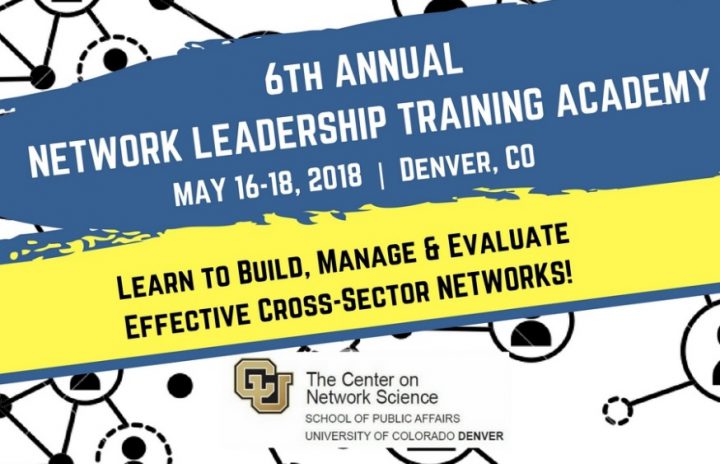
Last week I participated in the Network Leadership Training Academy hosted by the University of Colorado at Denver’s Center on Network Science. It was wonderful to meet fellow network geeks and enthusiasts from around the country and Canada and to hear about diverse applications of network theory and practice, from public health to public transportation, from early childhood education to after-school programming, from housing to firefighting.
I was invited to share some of what we at the Interaction Institute for Social Change are learning as we work at the intersection of networks and equity, which included telling the evolving story of Food Solutions New England. There seemed to be resonance with and appetite for going deeper to unpack how networks can be forces for truly equitable liberation from dysfunctional and damaging systems.
And there were many other presenters over the course of the couple of days I was able to attend. Here are some of my take-aways.
- In networks, less is often more with respect to personal connections. Given that people can only manage a certain number of social connections, a good question to ask is “How can we cultivate and maintain the fewest number of connections that are valuable?”
- Closed networks do not lend themselves to novelty. For innovation (and presumably for both resilience and adaptability) it is important to pay attention to “structural holes” in networks.
- Effective engagement rests on authentic listening, informal exchanges and meetings (lunch, coffee), identifying and honoring strengths and assets, thinking of people as people and not projects, constantly showing up and closing loops.
- In order to activate a network you have to have established sufficient trust and reciprocity.
- Effective networks for individual “leaders” are open (distributed), diverse and deep.
From conversation and reflection with participants:
- Connection is a social determinant of health.
- Increasingly healing needs to be viewed as a foundational goal of developing networks.
- Effective networks for individuals are not necessarily effective networks for collectives and social change. We have to be clear about what our scale and intentions are. (ON this front, check out this wonderful post by Christine Capra – “Networking Does Not Equal Network WEAVING“)
Additional resources to consult:
- The Partner Tool, a social network analysis tool designed to measure and monitor collaboration among people/organizations.
- Person-Centered Network App, for use by a provider to first screen a person to assess their gaps and strengths in their personal support systems and then, based on the results, link them to available community resources.
May 14, 2018
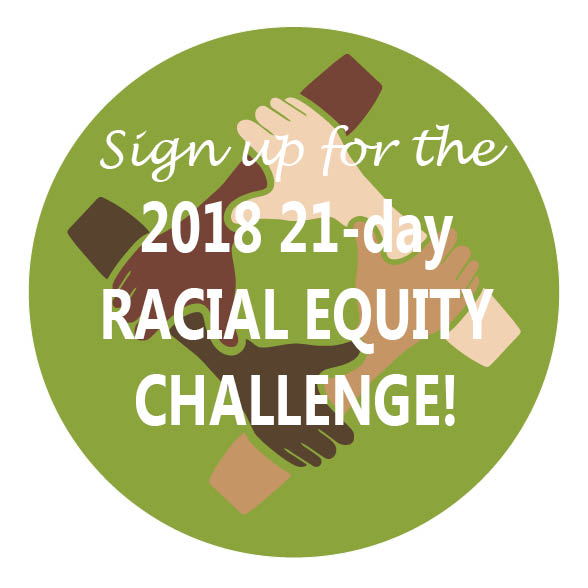 On April 22nd, the fourth annual 21 Day Racial Equity Habit Building Challenge wrapped up. This project with Food Solutions New England was originally conceived as a “network innovation” to spread and deepen the conversation about and commitment around addressing race and racism in food and related systems. This year the organizing team sought to go deeper, noting how much the national conversation has evolved in the past year. And we were heartened by the numbers (over 3,000 people from all 50 states and parts of Canada signed up) and by the quality of the conversation on-line and in different in-person venues where we met people who were participating. Certainly no one is under the illusion that the Challenge is enough, but we have heard that it is changing the way many see their work in food systems. Below you will find some of what was generously offered on-line in response to the daily email prompts and associated resources (readings, videos, audio clips).
On April 22nd, the fourth annual 21 Day Racial Equity Habit Building Challenge wrapped up. This project with Food Solutions New England was originally conceived as a “network innovation” to spread and deepen the conversation about and commitment around addressing race and racism in food and related systems. This year the organizing team sought to go deeper, noting how much the national conversation has evolved in the past year. And we were heartened by the numbers (over 3,000 people from all 50 states and parts of Canada signed up) and by the quality of the conversation on-line and in different in-person venues where we met people who were participating. Certainly no one is under the illusion that the Challenge is enough, but we have heard that it is changing the way many see their work in food systems. Below you will find some of what was generously offered on-line in response to the daily email prompts and associated resources (readings, videos, audio clips).
History of Race and Racism in the Food System: What is the history you hold in your head (and heart and body) about our current food systems?
“In my work at a non profit in the ‘good food’ movement, we constantly use language like ‘fix the broken food system.’ Reading these pieces on the historical underpinnings of racism in our food system illuminated for me just how much that statement (almost a throw away now) is situated within a racial caste system. To presume that ‘we’ must ‘fix’ a system ignores (by not naming) the racism present in that system. It lumps the goals of racial and food justice in with other, non-racialized issues (like soil health) also plaguing our current system, thereby continuing to perpetuate injustice through silence.”
“The consistent glorification of a food system, broken or fixed, imagined or real, that has systematically ignored the people that make it function, throughout the past and yet still in the present, is something I think I unknowingly participate in. Will naming this, calling it out, help us to change the structural racism that fuels this reality? How? I hope that by learning, studying, reflecting, and communicating that this group can indeed be somehow change-making, but it’s challenging to see a positive horizon when the change to be had is so large and primarily resides in legal, political and social institutions and structures. Forgive me for being still inside a state of feeling overwhelmed.”
The Colonization of Indigenous Land Rights and Food Ways: How does colonization continue to exist in our food systems and how can you support decolonization and celebrate indigenous rights and food ways?
“I just finished listening to The True History & Foods of Thanksgiving. My immediate reaction is shock and shame. I accepted Thanksgiving as an American celebration without ever wondering about its history. The podcast is a great conversation that educated me about how interwoven food, land, location, spirituality and culture are for some traditions within Native Americans. I wish we treated our lands and environment with the same care that many people were able to do before they were colonized.”
“In my state, treaties still continue to be broken with Native American communities, the most recent agreement being broken in 2015. State programs aimed to “help” are rooted in white supremacist ideologies. I think of Audrey Lorde when she declared, “For the master’s tools will never dismantle the master’s house. They may allow us to temporarily beat him at his own game, but they will never enable us to bring about genuine change. Racism and homophobia are real conditions of all our lives in this place and time. I urge each one of us here to reach down into that deep place of knowledge inside herself and touch that terror and loathing of any difference that lives here. See whose face it wears. Then the personal as the political can begin to illuminate all our choices.”
Read More
October 2, 2017
“We cannot live for ourselves alone. Our lives are connected by a thousand invisible threads, and along those sympathetic fibers, our actions run as causes and return to us as results.”
– Herman Melville
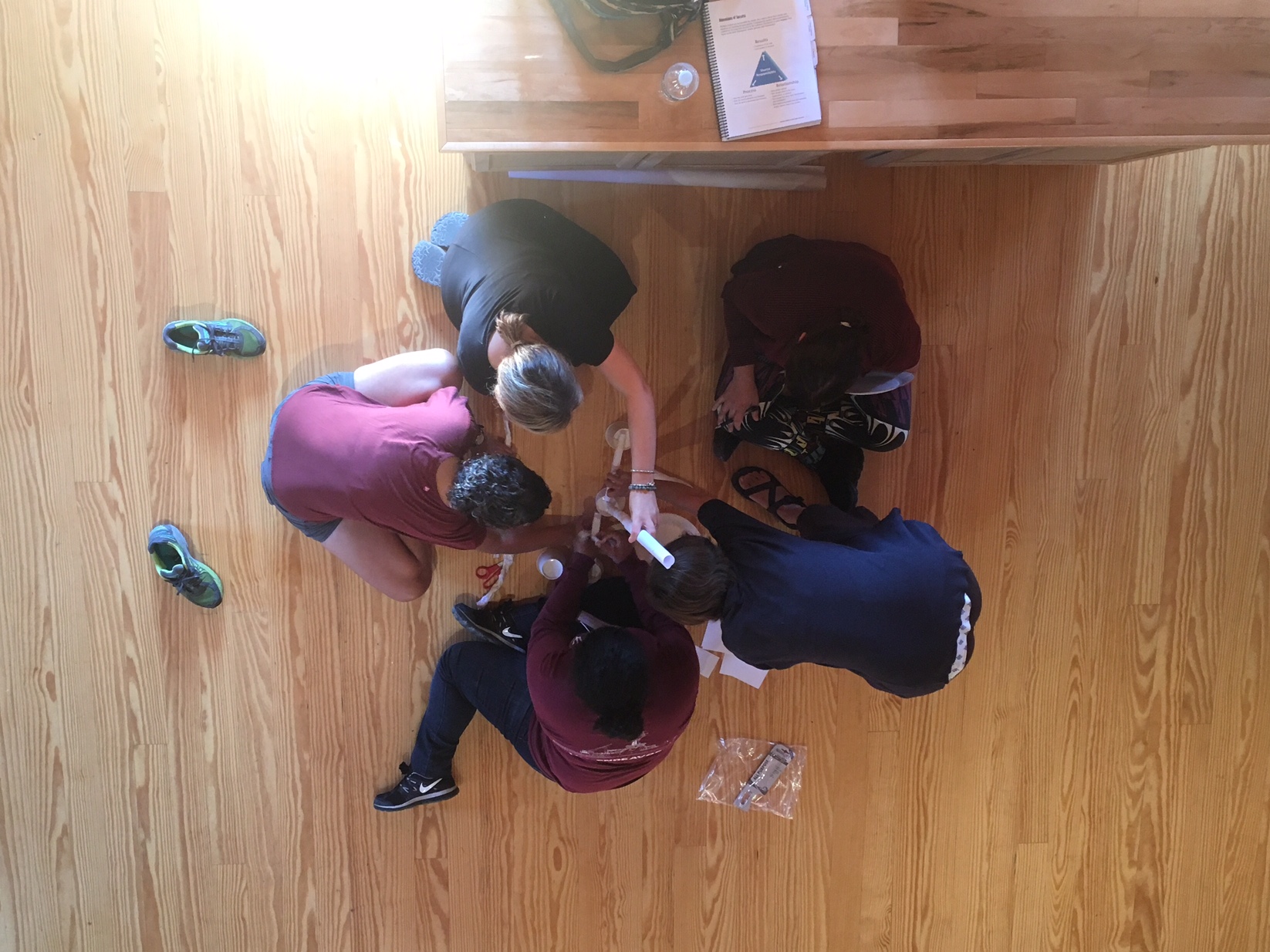
2017-2018 NLI cohort members engage in a team building exercise focused on the dimensions of collaborative success.
Last week I worked with the Backbone Team of Food Solutions New England to launch the second cohort of the Network Leadership Institute (NLI) at Ohana Camp in Fairlee, Vermont. This initiative has grown out of FSNE’s commitment to cultivating both thought leadership and network leadership “to support the emergence and viability of a New England food system that is a driver of healthy food for all, racial equity, sustainable farming and fishing, and thriving communities.” Another impetus for the NLI was a year spent doing system mapping and analysis that revealed four leverage areas for advancing a just, sustainable and democratically-owned and operated regional food system, including cultivating and connecting leadership (see image below). Read More
June 13, 2017
“Life moves toward other life… If we trusted more in these cohering motions, we could move into an essential role … supporting the system to explore new connections, new information, new ways of being. It means focusing on opening the system in all ways.”
Margaret Wheatley and Myron Kellner-Rogers, a simpler way
“Bridging” in the work of network development speaks to the act of creating connections between socially heterogeneous groups (or putting it a bit more crassly, building bridges between “us” and “them”). The benefits of bridging include making it possible for diverse groups to share and exchange information, creating new forms of access, as well as leveraging new ideas and spurring innovation between groups representing different interests and/or backgrounds. Bridging widens social capital by increasing the “radius of trust.” Unlike “bonding,” or more in-group relationship building (think “birds of a feather flocking together”), bridging can help create more inclusive structures that can have implications for long-term resilience and more equitable development. The following is a story of a network engaging in intentional bridging work for more robust connectivity, flows and opportunity …
Food Solutions New England (FSNE) is a regional, collaborative network organized to “support the emergence of a New England food system that is a resilient driver of racial equity and food justice, sustainable farming and fishing, and thriving communities.” FSNE is convened by For the past 5+ years, IISC has worked with the convening “backbone organization,” UNH Sustainability Institute, to launch and structure itself as a formal network, as well as to concretize and evolve its core commitment to racial equity as it has become more diverse and inclusive and worked for systemic change.
Eighteen months ago, FSNE was faced with making a decision about where to hold its annual Food Summit. The Summit was originally conceived to bring together delegates from across New England to strengthen collaboration for regional food system sustainability. The commitment was made early on by the convenor to move the Summit around the region, holding it in each of the six New England states once before going to any of them for a second time.
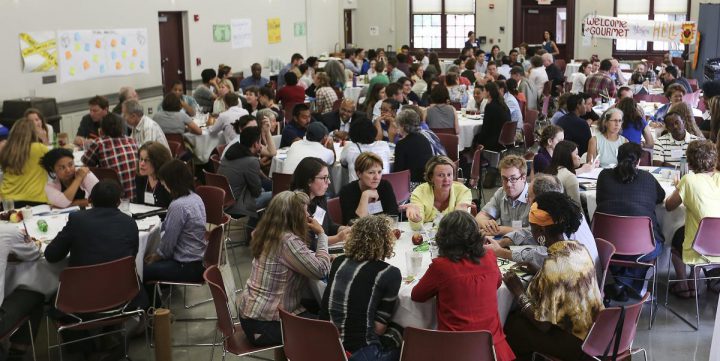
Delegates to the 2015 New England Food Summit gathered in Boston, MA.
In 2016, Connecticut was the last state to host the New England Food Summit. The network’s backbone organization was faced with a decision about the specific location within the state. Previous Summits had been held in prominent hubs in the other states – Portsmouth (NH), Burlington (VT), Portland (ME), Pawtucket/Providence (RI) and Boston. While places like Hartford and New Haven might have been natural considerations given their respective amenities and relative centrality in the state, the choice was made to bring the Summit to Bridgeport. This decision was spurred in no small part by the leadership of State Senator Marilyn Moore, who hails from that city and is a member of the FSNE Network Team. Senator Moore pointed out that not only would it be significant for Bridgeport to play host, given it is often overlooked in favor of its more well-known and regarded neighbors, it would also be enlightening for Summit delegates to see reality on the ground. Furthermore, this choice was viewed as an expression of FSNE’s commitment to racial equity and food justice.
Read More
May 8, 2017
“Clearly, we made some people uncomfortable. Good. For too long, our comfort has come on the backs of many who have been uncomfortable for a long, long time.”
–Niaz Dorry, FSNE Process and Network Team Member
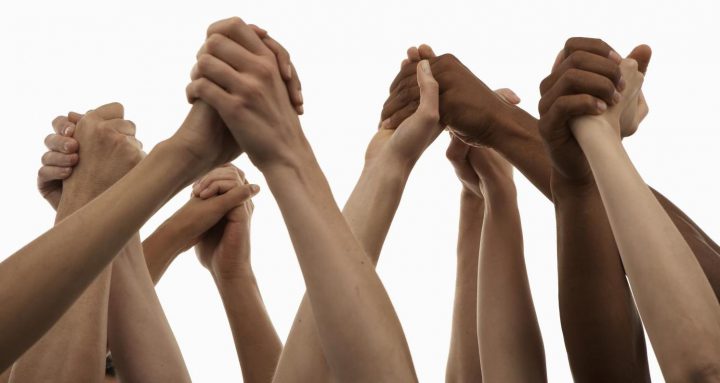
Food Solutions New England (FSNE) is a regional, collaborative network organized to “support the emergence of a New England food system that is a resilient driver of racial equity and food justice, sustainable farming and fishing, and thriving communities.”
For the past 5 years, IISC has supported FSNE to launch and structure itself as a formal network, as well as to concretize and evolve its core commitment to racial equity as it has become more diverse and inclusive and focused on systemic transformation. Over the winter, editorial staff from the Othering and Belonging Journal at the Haas Institute for a Fair and Inclusive Society solicited an article submission from FSNE to tell the story of why and how the network has operationalized its commitment to racial equity and food justice.
“While Othering processes marginalize people on the basis of perceived group differences, Belonging confers the privileges of membership in a community, including the care and concern of other members. As [john a.] powell has previously written, ‘Belonging means more than just being seen. Belonging entails having a meaningful voice and the opportunity to participate in the design of social and cultural structures. Belonging means having the right to contribute to, and make demands on, society and political institutions.'”
–Andrew Grant-Thomas, from Othering and Belonging Editors’ Introduction
The article was published last week under the title “Equity as Common Cause,” co-authored by El Farrell, Tom Kelly and Joanne Burke of the UNH Sustainability Institute (the convenor of FSNE), Karen Spiller of KAS Consulting and the Albert Schweitzer Fellowship (Karen is lead FSNE Ambassador) and myself, as network facilitator, with input and voices of many others, including Connecticut Senator Marilyn Moore, Julius Kolawole of the African Alliance of Rhode Island and Niaz Dorry of North Atlantic Marine Alliance. Read More
March 22, 2017
“It is certain, in any case, that ignorance, allied with power, is the most ferocious enemy justice can have.”
James A. Baldwin
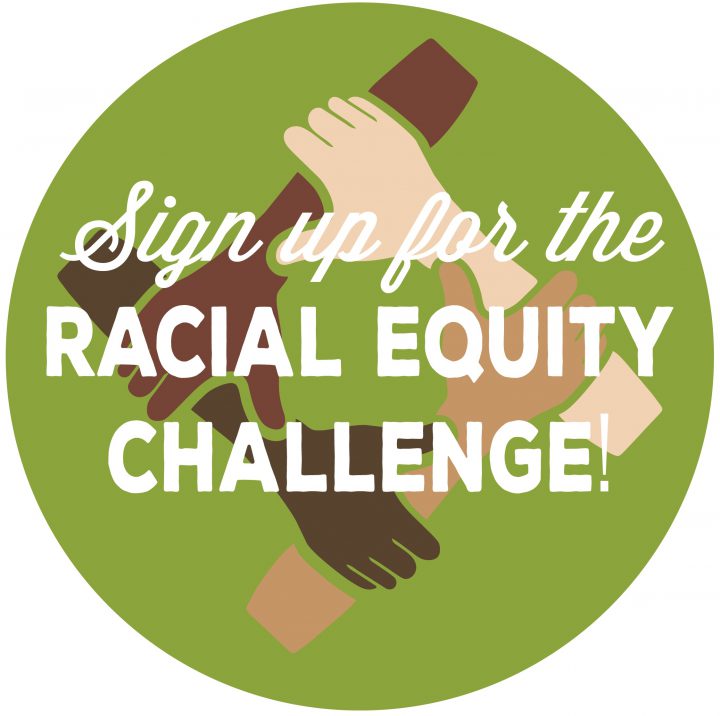
For the third year in a row, IISC is working with Food Solutions New England to design and facilitate the 21 Day Racial Equity Habit Building Challenge (April 9-29) as an extension of our mutual commitment to racial justice. The challenge is a virtual and networked remix of an exercise created by Dr. Eddie Moore, Jr. and Debby Irving, offered as a way of spreading and deepening commitment to learn about, talk about and take action to solve racial injustices in the food and other related systems.
This year, we are adding additional tools and prompts to create a rich environment for learning, conversation and action. This includes:
- a more extensive resource page with readings, tools, videos and organizational links,
- a new list of daily prompts with links to resources and room for participants to offer written reflections,
- a series of original blog posts on the FSNE website committed to relevant topics and themes
- a Twitter hashtag (check out #FSNEEquityChallenge)
Read More
March 10, 2017
“We never know how our small activities will affect others through the invisible fabric of our connectedness. In this exquisitely connected world, it’s never a question of ‘critical mass.’ It’s always about critical connections.”
Grace Lee Boggs
The past twelve months I had the pleasure of working with a team from Food Solutions New England to design and facilitate its first Network Leadership Institute. This initiative grew out of FSNE’s ongoing commitment to cultivating thought leadership and network leadership “to support the emergence and viability of a New England food system that is a driver of healthy food for all, racial equity, sustainable farming and fishing, and thriving communities.” Another impetus for the Institute was a year spent doing system mapping and analysis that revealed four leverage areas for advancing a just, sustainable and democratically-owned and operated regional food system, including cultivating and connecting leadership. Read More
February 27, 2017
“We add value to society-at-large when we dare to connect.”
– Gibran Rivera
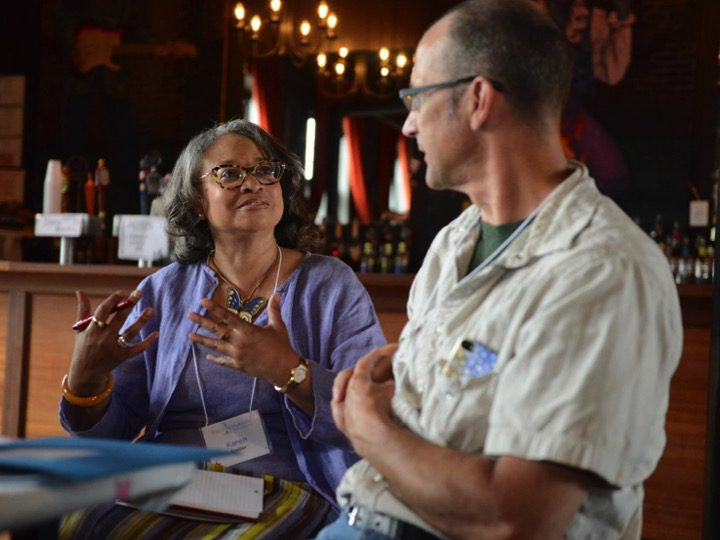
For the past five years, Food Solutions New England has been building a regional collaborative network organized to support the emergence and sustainability of a New England food system that is a driver of healthy food for all, racial equity, sustainable farming and fishing, and thriving communities. This network was formally launched with support of IISC in response to a shared sense that greater connection, trust, deep collaboration and innovation were needed across food system efforts throughout the region. To create this connectivity, we have engaged in a number of structural and procedural innovations, including creating an Ambassador Team to do network weaving and the 21 Day Racial Equity Habit Building Challenge, which will happen again this year from April 9-29.
Along the way, we have been witnessing some important boundary-crossing and new partnerships emerging. One example in particular stands out, stemming from a field visit a number of us did to a fishing community in the region to learn more about the challenges to and innovations among small scale fishermen. Our tour was organized by a network team member and community organizer of color who focuses on fisheries who has many deep connections in that community. One of the attendees of the tour was an older white man who does policy work in another state. Personality-wise, these two individuals are quite different, along with their chosen points of intervention in the food system. And yet on the heels of that tour, the organizer and the policy wonk became good friends and colleagues who continue to learn from one another and coordinate more around fisheries and policy analysis/development, creating new opportunities in and across their respective worlds. Read More
December 19, 2016

The following post recently appeared on the Food Solutions New England (FSNE) website. I have had the great pleasure and privilege of supporting FSNE for the past five years as a network design and development consultant, facilitator, and trainer. As we near the end of 2016, a year that has proven challenging to many, I continue to find some of my greatest hope in the work of this important and unique initiative, grounded in the tremendous commitment and generosity of its shared (net) leadership. This is not the first time that I have written about the work of FSNE. Other posts include: Distribution, Diversity, Dignity: Networking the “Business Case” for a Regional Food System; Leveraging a New (Food) System Narrative; Racial Equity Habit Building 2.0; Peeling Away Layers for Impact in Networks for Change; and Networks: A Love Story. The post below speaks specifically to the past year-plus of work identifying “leverage areas” for coordinated collective action …
In 2015, the Food Solutions New England (FSNE) Network Team began a year-long process to better understand how we could support the region in achieving the New England Food Vision. The Vision describes a future in which at least 50% of our food is grown, raised, and harvested in New England and no one goes hungry. It looks ahead to the year 2060 and sees farming and fishing as important regional economic forces; soils, forests, and waterways cared for sustainably; healthy diets as a norm; and racial equity and food justice promoting dignity and well being for all who live in New England. Read More
December 6, 2016
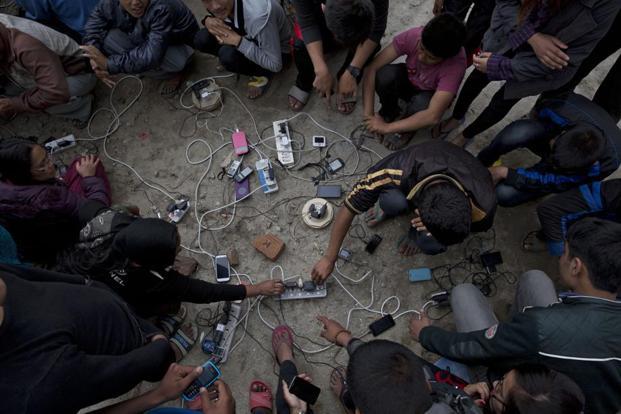
Over the recent Thanksgiving break, I had the opportunity to meet with friends of extended family members, a couple who are engaged in both disaster relief and community planning work. She is from Nepal and he is from the U.S., and together they relayed a story about their time visiting Nepal during the devastating earthquake of 2015.
The two of them were hiking in the mountains when the 7.8 magnitude quake struck. Shaken but not hurt, they made their way back to Katmandu as quickly as possible to check in on family members and then to offer their assistance to others. Originally assigned the task of loading water jugs on trucks, they then volunteered and were enlisted for their translation skills, and headed out to some of the hardest hit villages with international relief workers. Read More
August 30, 2016
“A good solution solves more than one problem, and it does not make new problems.”
– Wendell Berry

An essay that I return to now and then, including over these past summer months, is Wendell Berry‘s “Solving for Pattern.” Published in 1981, the piece essentially considers systemic approaches to more “sustainable “agriculture, though the concept alluded to in the title has wider application. The phrase “solving for pattern” is an invitation to take a larger and longer view of “problem-solving,” to think about interventions that serve a bigger picture in more sustained and multiply beneficial ways.
Solving for pattern, according to Berry, runs counter to reductionist and mechanical solutions, which lend themselves to more predictable and relatively contained situations. When reductionist solutions are applied to more complex and systemic situations, they are more prone to failure and to exacerbating negative aspects. Real-life examples include:
Read More


 On April 22nd, the fourth annual
On April 22nd, the fourth annual 







